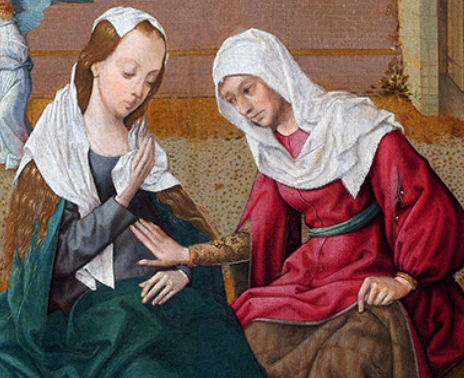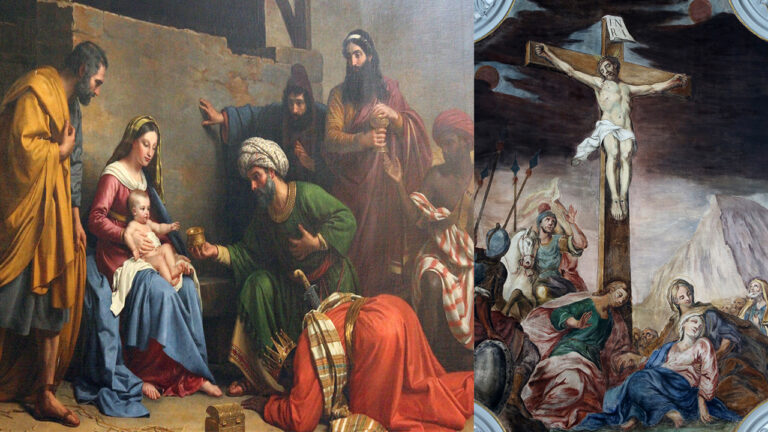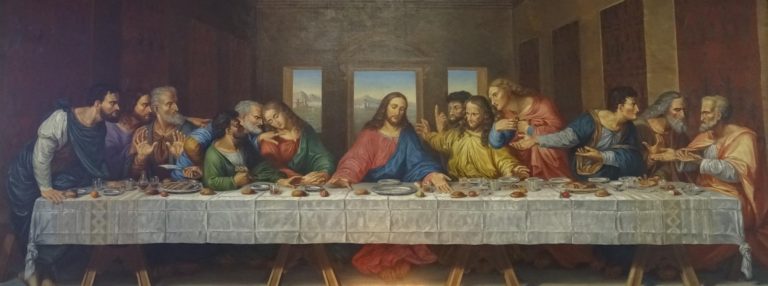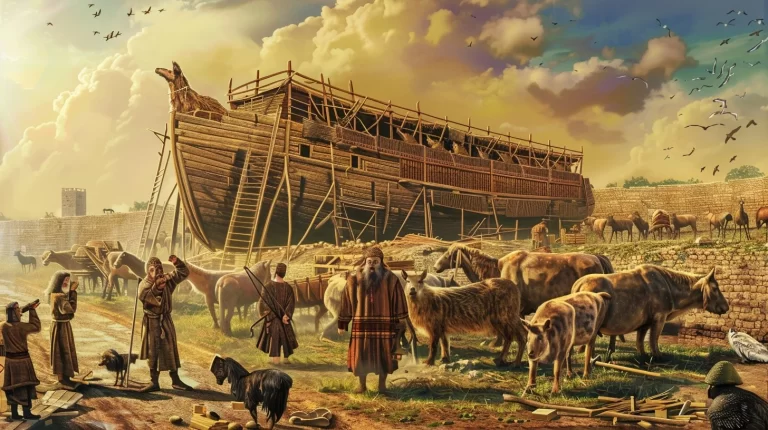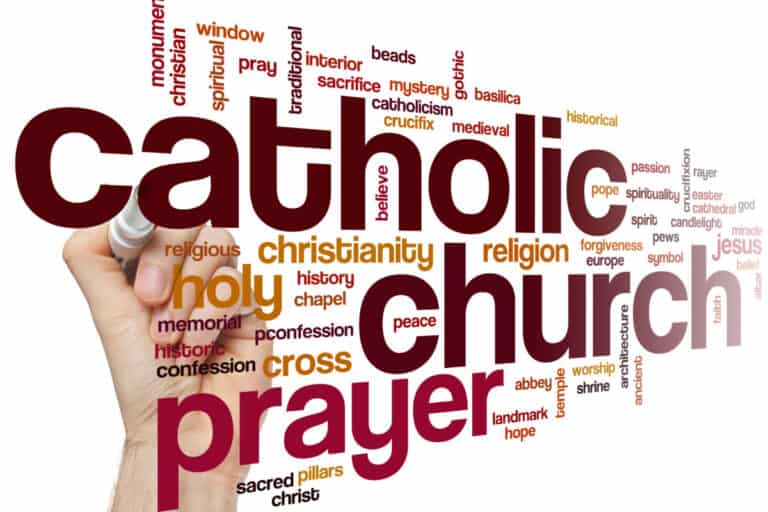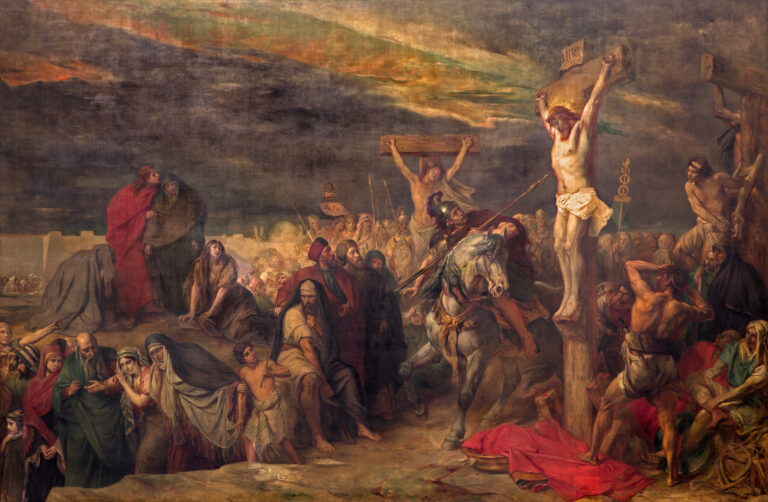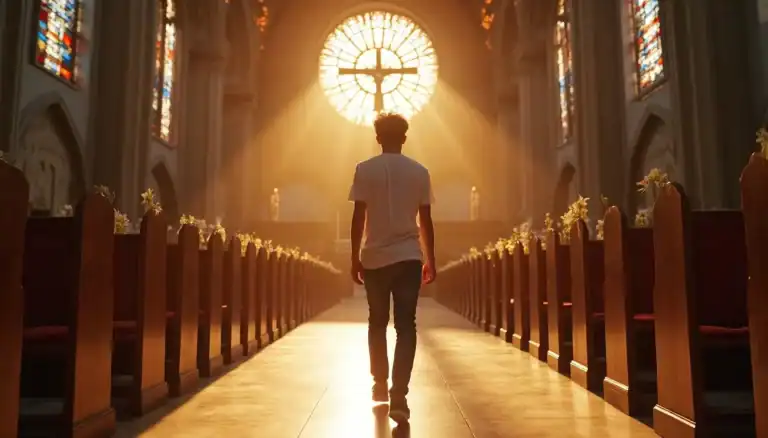What is the Catholic Teaching on Abortion?
The teaching of the Catholic Church on abortion has remained steadfast and unwavering throughout history. “Since the first century the Church has affirmed the moral evil of every procured abortion. This teaching has not changed and remains unchangeable,” states the Catechism of the Catholic Church (No. 2271). I find this consistency particularly significant in our ever-changing world, where moral relativism often prevails.
What makes this teaching so resolute?
Throughout the centuries, the Church has maintained that human life is sacred from the moment of conception. His Holiness Pope Francis emphasizes this truth unequivocally: “Abortion is murder…It’s a human life, period.” The Church’s position stems from our fundamental belief in the dignity of each human person as created in the image and likeness of God.
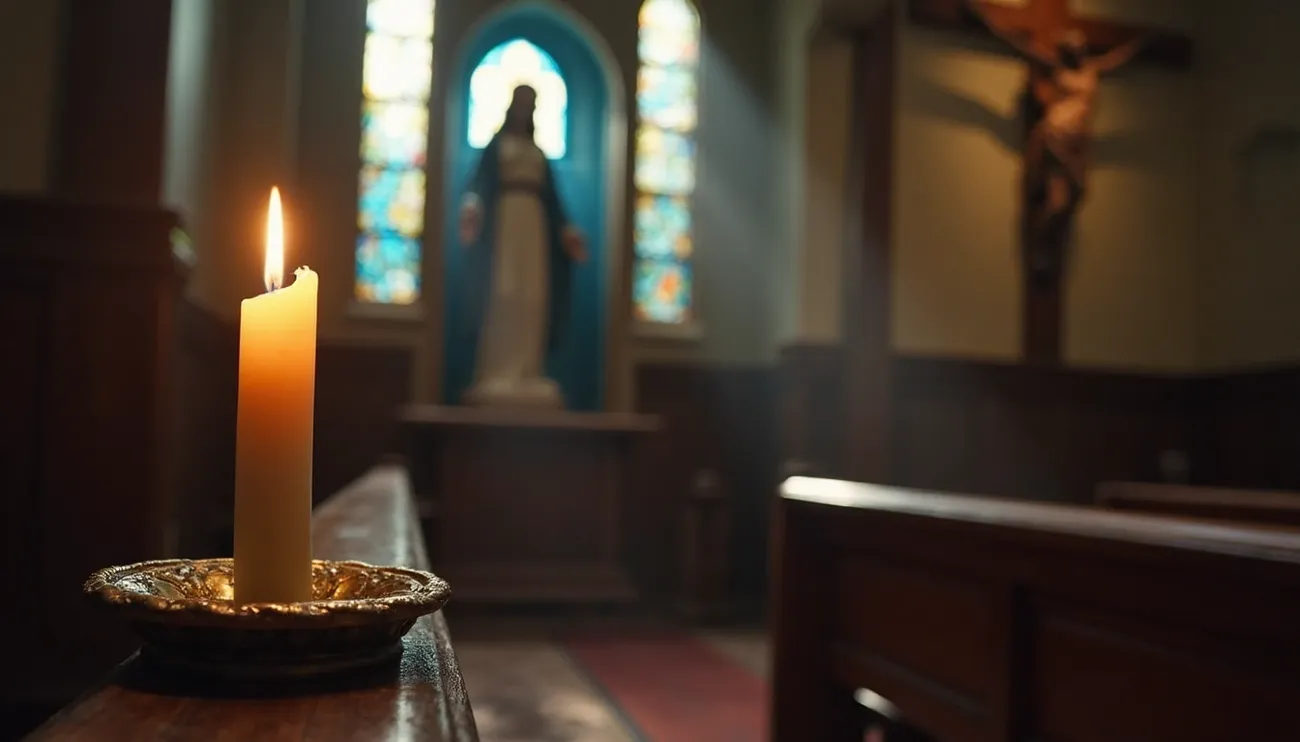
The gravity of this issue becomes apparent when we consider the statistics. Since 1973, over 50 million abortions have been performed in the United States alone, with approximately 3,400 abortions each day. Behind these staggering numbers are real lives—both the unborn children and women facing difficult circumstances.
Let us consider the Catholic Church’s official position on abortion by examining:
Its historical development from the earliest days of Christianity
The scientific foundations that support the Church’s teaching
The moral implications for Catholics and society at large
How the Church responds with mercy to those affected by abortion
This is a Doctrine of the faith that “the human being is to be respected and treated as a person from the moment of conception.” I highly recommend approaching this topic with reverence and openness, as it touches upon the most fundamental questions of human life and dignity.
The Church’s Unchanging Teaching on Abortion
The Catechism of the Catholic Church presents a clear and definitive position on abortion. According to paragraph 2270,
“Human life must be respected and protected absolutely from the moment of conception. From the first moment of existence, a human being must be recognized as having the rights of a person – among which is the inviolable right of every innocent being to life.”
This foundational teaching forms the cornerstone of Catholic moral doctrine regarding the sanctity of human life.
What the Catechism says?
The Catechism addresses abortion directly and unambiguously. Paragraph 2271 states, “Direct abortion, that is to say, abortion willed either as an end or a means, is gravely contrary to the moral law.”
Moreover, the text emphasizes that this prohibition is not new or subject to change:
“The Church has affirmed the moral evil of every procured abortion.”
This teaching extends to those who participate in or facilitate abortions, with paragraph 2272 explaining that
“formal cooperation in an abortion constitutes a grave offense.”
This shows the extent to which the Church views abortion as not merely an individual act but one that implicates all who enable it.
Additionally, the Catechism connects abortion to the Fifth Commandment (“You shall not kill”), establishing it as a fundamental moral principle rather than merely a policy position. The gravity of this teaching is underscored by the Church’s canonical penalties:
“A person who procures a completed abortion incurs excommunication latae sententiae” (meaning automatically, by the very act itself).
Why the teaching is considered unchangeable?
The Catholic Church considers its teaching on abortion unchangeable for several interconnected reasons:
Natural law foundation – The prohibition against abortion isn’t merely a Church regulation but is rooted in natural law, which the Church understands as accessible to human reason and universally applicable.
Scriptural basis – Though the Bible doesn’t explicitly mention abortion, the Church sees numerous passages affirming the sanctity of life and God’s relationship with humans before birth.
Consistent tradition – From the earliest Christian documents like the Didache (first century), which commanded “you shall not kill a child by abortion,” the Church has maintained an unbroken position against abortion.
Magisterial authority – The teaching has been consistently affirmed at the highest levels of Church authority through papal encyclicals, conciliar documents, and official statements.
Therefore, the Church views this teaching as part of its deposit of faith—a truth that cannot be altered or abandoned regardless of changing cultural attitudes or political pressures. As Catholics, we believe this is not merely a matter of Church discipline but of divine revelation preserved through the Magisterium.
How long has the Catholic Church opposed abortion?
From the earliest days of Christianity, the Church has spoken against abortion. The consistent teachings against abortion from the first century to today reveal a profound respect for human life that has remained unwavering throughout the ages.
A) Early Church writings and the Didache
The Didache, one of the earliest Christian documents outside the New Testament (dating approximately 85-110 AD), directly commanded Christians:
“thou shalt not murder a child by abortion nor kill them when born.”
This straightforward prohibition appeared alongside other moral imperatives like avoiding murder, adultery, and sexual immorality. Similarly, the Epistle of Barnabas (c. 130 AD) stated:
“You shall not abort a child nor, again, commit infanticide.”
The early Church Fathers consistently condemned abortion as morally wrong. As we read in Tertullian’s writings from 197 AD:
“To hinder a birth is merely a speedier man-killing… That is a man which is going to be one; you have the fruit already in its seed.”
Even before formal Church legislation, Christian writers like Athenagoras, Clement of Alexandria, and Basil of Caesarea firmly rejected abortion as contrary to Christian ethics.
The earliest Church councils that addressed abortion, such as the Synod of Elvira and the Synod of Ancyra in the 4th century, imposed penalties on those who procured abortions. These penalties varied in severity but consistently treated abortion as a grave sin requiring serious penance. This shows the Church’s commitment to protecting human life from its earliest days.
Influence of Aristotle and Aquinas
Throughout the medieval period, Catholic thinking on abortion was influenced by Aristotelian biology, which proposed a gradual development of the fetus. According to this view, the human soul was “infused” into the body at a certain point of development—after about 40 days for males and 80 days for females.
St. Augustine, writing in the 5th century, accepted this distinction between “formed” and “unformed” fetuses based on the Septuagint translation of Exodus 21:22-23. Nonetheless, he “vigorously condemned the practice of induced abortion” at any stage.
St. Thomas Aquinas further integrated Aristotelian concepts in the 13th century. While accepting delayed ensoulment theory, he nonetheless rejected abortion as “gravely wrong at every stage” and “a sin against nature.” His influential writings contributed to a system where Church law sometimes distinguished between early and late abortions for purposes of canonical penalties, while consistently condemning all abortions as morally evil.
B) Modern understanding post-19th century
What changed in the Church’s understanding as science advanced?
In 1827, scientific discovery of the human ovum discredited Aristotle’s biology. Scientists increasingly understood that a new human being exists from conception, possessing unique genetic identity. Subsequently, the Church’s canonical approach shifted to align with this scientific reality.
Pope Pius IX officially removed the distinction between “animated” and “unanimated” fetuses from Church law in 1869 with his bull Apostolicae Sedis moderationi. This marked a significant development—from then on, excommunication applied to abortion at any stage of pregnancy.
The 1917 Code of Canon Law codified this position, stating that “all who procure abortion (‘not excepting the mother’) incur an automatic excommunication.” This represented not a change in moral teaching but a disciplinary alignment with advancing scientific knowledge about human development.
Throughout this historical development, the fundamental moral evaluation of abortion remained constant—the Church consistently viewed abortion as gravely wrong even during periods when distinctions were made regarding canonical penalties. Much like the development of other doctrines such as Purgatory or the Holy Trinity, the Church’s understanding of when life begins deepened over time, with modern Catholic teaching aligning with contemporary embryology’s recognition that human life begins at conception.
C) Scientific and Philosophical Foundations
The union of science and philosophy forms the bedrock of Catholic teaching on abortion. Modern embryology has deepened the Church’s understanding of when human life begins, providing scientific validation for what the Church has taught for centuries.
When does human life begin?
From a scientific perspective, human life begins at fertilization—the moment when sperm and egg unite to form a zygote. The standard medical text Human Embryology and Teratology confirms this truth:
“Although human life is a continuous process, fertilization is a critical landmark because, under ordinary circumstances, a new, genetically distinct human organism is thereby formed” [8].
This biological fact serves as the foundation for Catholic moral teaching.
Prior to the 19th century’s discovery of the human ovum, understanding was limited about embryonic development [9]. Throughout the Scriptures the notion of life beginning at conception is implied, and science has now eliminated ambiguity. As we read in embryology texts, within 24 hours after fertilization, the egg rapidly divides into many cells [10]. By the fourth week, a primitive face forms, blood cells take shape, and the tiny “heart” tube beats sixty-five times per minute [10]. Ultrasound has detected a heartbeat as early as 21 days after fertilization [11].
The role of modern genetics
Modern genetics has provided compelling evidence that human identity is established at conception. Each zygote possesses a complete genetic complement—unique DNA with approximately 46 chromosomes—that distinguishes it as unquestionably human [8]. This genetic code contains all information necessary for the organism’s development.
The U.S. Conference of Catholic Bishops notes that the biological reality of human development confirms the Church’s teaching: “Given the scientific fact that a human life begins at conception, the only moral norm needed to understand the Church’s opposition to abortion is the principle that each and every human life has inherent dignity” [7].
Personhood and the soul: a philosophical view
Beyond biology lies the philosophical question of personhood—when a developing human acquires moral status and rights. Throughout history, various philosophical markers have been proposed:
Individuation (after which twinning cannot occur)
Implantation into the uterus
Development of a fetal heartbeat
Viability outside the womb [9]
The Church acknowledges this philosophical dimension. In 1974, the Congregation for the Doctrine of Faith stated: “There is not a unanimous tradition on [when a fetus becomes a human person]… It is not within the competence of science to decide between these views, because the existence of an immortal soul is not a question in its field. It is a philosophical problem” [9].
This shows the extent to which the Church has considered both scientific and philosophical dimensions of human development. Nevertheless, the Church’s position remains clear: human embryos must be treated as persons from conception. As John Paul II affirmed, “from the first instant there is established the program of what this living being will be: a person” [12].
The Church’s position stands on the firm ground of biological reality while acknowledging the profound philosophical questions involved. The Catholic approach to this question is both rational and reverent, recognizing the inherent dignity of human life from its earliest stages.
D) Moral and Legal Implications
The Catholic Church does not merely view abortion as a theological matter but addresses how this teaching should inform civil law and society. This shows the extent that the Church goes to protect human life, insisting that laws must “provide appropriate penal sanctions for every deliberate violation of the child’s rights” [13].
Catholic view on abortion laws
The Catechism of the Catholic Church makes clear that “the inalienable right to life of every innocent human individual is a constitutive element of a civil society and its legislation” [14]. This is not merely a religious position but stems from our understanding of fundamental human rights.
Throughout the Scriptures and Church tradition, we see that the protection of innocent human life is a non-negotiable moral principle. As Catholics, we believe this protection must extend to the most vulnerable among us—the unborn child. The Holy See has emphatically declared that “no law whatsoever can ever make licit an act which is intrinsically illicit” [13]. If we accept this principle, then it follows that Catholics are called to advocate for legal protections for unborn children.
Excommunication and canon law
The gravity of abortion in Catholic moral teaching is reflected in Canon 1398, which imposes an automatic (latae sententiae) excommunication on those who “procure a completed abortion” [14]. What does this mean in practice? This penalty extends beyond the woman herself to include all accomplices without whose help “the offense would not have been committed” [15]—including medical professionals performing abortions and those who finance or strongly encourage the procedure.
Yet the Church, in her wisdom and mercy, also provides a path to reconciliation. His Holiness Pope Francis, during the 2016 Jubilee of Mercy, extended to all priests the faculty to absolve both the sin of abortion and its accompanying excommunication [16]. This shows the extent of God’s mercy, which reaches even those who have participated in this grave offense.
How does the Catholic Church respond Pastorally to Abortion?
Pastoral Response and Mercy
The Church’s teaching on abortion is firm and unwavering, yet She responds with profound compassion to those wounded by abortion decisions. Each day, approximately 225 abortions take place in Southern California alone [19], creating a vast need for healing ministries that address both spiritual and psychological wounds.
Support for post-abortive women
Many women experience severe depression and trauma following abortion [19]. The Church, in Her wisdom, recognizes that decisions about abortion “sometimes arise from difficult or even tragic situations of profound suffering, loneliness, a total lack of economic prospects, depression and anxiety about the future” [13]. This understanding shapes Her compassionate response.
St. John Paul II directly addressed women who had experienced abortion with these words of hope: “The Church is aware of the many factors which may have influenced your decision, and she does not doubt that in many cases it was a painful and even shattering decision” [13]. His message affirms that healing is possible, urging women to “give yourselves over with humility and trust to repentance” [13].
To understand this balanced approach is to recognize how the Church simultaneously upholds truth while practicing mercy. As Catholics, we believe that God’s mercy is boundless, even when our sins are grave.
Healing through reconciliation
At the heart of Catholic healing ministry is reconciliation through the Sacrament of Confession. The Church teaches that “the Father of mercies is ready to give you his forgiveness and his peace in the Sacrament of Reconciliation” [13]. This sacramental healing addresses both spiritual wounds and emotional trauma.
Pope Benedict XVI beautifully expressed this truth when he noted that “even when man rejects the truth and goodness that the Creator proposes to him, God does not abandon him” [13]. This theological foundation supports a pastoral approach that combines spiritual guidance with psychological support.
I have witnessed how this sacrament brings profound peace to those carrying the burden of abortion. The confessional becomes not a place of judgment but a sanctuary of mercy where Christ’s healing love flows abundantly.
Church programs and community outreach
Throughout the country, dioceses offer specialized ministries for post-abortion healing:
Project Rachel – A nationwide network of trained priests, counselors, and laypeople providing pastoral counseling, support groups, retreats, and mental health referrals [20]
By Your Side LA – A comprehensive, bilingual ministry with a professional call center, trained companions, and healing resources [19]
Entering Canaan Retreats – Healing gatherings where participants can process grief and connect with support systems [21]
Conclusion
As we have journeyed through this exploration of Catholic teaching on abortion, the unwavering consistency of the Church’s position stands in stark contrast to the shifting sands of modern moral relativism. From the Didache in the first century to Pope Francis’s statements today, this teaching remains one of the most steadfast elements of Catholic moral doctrine.
The scientific evidence we have examined supports what the Church has taught for centuries – human life begins at conception. This shows the extent to which our moral obligation to protect unborn life isn’t merely a religious position but one grounded in biological reality. Although philosophical debates about personhood continue in academic circles, the Church wisely applies the principle: when human life is present, we must err on the side of protection rather than destruction.
Throughout the Scriptures the notion of human dignity is implied, and my examination of historical developments reveals that while understanding has deepened with scientific discovery, the fundamental moral evaluation has remained resolute. Furthermore, the Church’s teaching on abortion does not exist in isolation but forms part of a comprehensive ethic that values human dignity at all stages of life.
What distinguishes Catholic teaching on this matter is the remarkable balance between moral clarity and pastoral sensitivity. On one hand, the Church maintains unequivocally that abortion constitutes a grave moral evil. On the other hand, it offers genuine healing and reconciliation through ministries like Project Rachel and the Sacrament of Confession.
This balance reflects the heart of Catholic moral teaching – upholding truth while practicing mercy. The Father of mercies is ready to give His forgiveness and peace, even as the Church condemns the act while embracing the person. Much is unknown about the personal circumstances that lead to abortion decisions, but the Church recognizes that many occur under tremendous pressure and often lead to profound suffering afterward.
For Catholics and non-Catholics alike, I believe this consistent witness to the sanctity of human life offers an important counterpoint to utilitarian approaches that measure human worth by productivity, independence, or convenience. Despite cultural shifts and political pressures, the Catholic position remains clear: human life deserves protection from its very beginning.
I highly recommend that we see in every unborn child what we recognize in ourselves – a unique, unrepeatable person deserving of dignity, protection, and love. This is consistent with our belief in a God who knows us before we are formed in the womb and calls us to defend the most vulnerable among us.
FAQs
Q1. What is the Catholic Church’s official position on abortion? The Catholic Church teaches that abortion is a grave moral evil and is prohibited at any stage of pregnancy. This teaching is considered unchangeable and has been consistently held since the earliest days of Christianity.
Q2. Does the Catholic Church offer forgiveness for those who have had abortions? Yes, the Church offers forgiveness and reconciliation through the Sacrament of Confession. Pope Francis has extended to all priests the ability to absolve the sin of abortion and lift any associated excommunication.
Q3. How does the Catholic Church view laws regarding abortion? The Church advocates for legal protections for the unborn, believing that civil law should recognize and protect the rights of unborn children from the moment of conception.
Q4. What scientific basis does the Catholic Church use to support its position on abortion? The Church’s position aligns with modern embryology, which recognizes that human life begins at fertilization. At this point, a new organism with unique DNA is formed, supporting the Church’s view of the sanctity of life from conception.
Q5. How does the Catholic Church support those affected by abortion? The Church offers various healing ministries and support programs, such as Project Rachel, to provide pastoral counseling, support groups, and mental health referrals for women, men, and families affected by abortion.
References
[1] – https://www.catholic.com/magazine/print-edition/why-catholics-cant-be-pro-choice
[2] – https://www.catholicsforchoice.org/resource-library/abortion-in-the-catholic-conscience/
[3] – https://paulist.org/the-conversation/a-humble-attempt-at-a-catholic-explanation-of-the-right-to-life-from-the-moment-of-conception/
[4] – https://catholicinsight.com/personhood-and-abortion-a-historical-review-in-the-catholic-tradition/
[5] – https://www.usccb.org/issues-and-action/human-life-and-dignity/abortion/respect-for-unborn-human-life
[6] – https://www.catholicworldreport.com/2022/12/05/the-serious-difference-between-a-human-being-and-a-human-person/
[7] – https://capp-usa.org/abortion/
[8] – https://www.vatican.va/roman_curia/congregations/cfaith/documents/rc_con_cfaith_doc_20090711_aborto-procurato_en.html
[9] – https://www.catholicherald.com/article/columns/straight-answers-automatic-excommunication-for-those-who-procure-abortion/
[10] – https://www.ewtn.com/catholicism/answers/abortion-excommunication-24758
[11] – https://en.wikipedia.org/wiki/Eucharist_denial_to_Catholic_politicians_over_abortion
[12] – https://www.usccb.org/prolife/catholics-political-life
[13] – https://lifejusticeandpeace.lacatholics.org/healing-after-abortion
[14] – https://www.usccb.org/prolife/abortion-healing
[15] – https://diobr.org/post-abortion-healing
